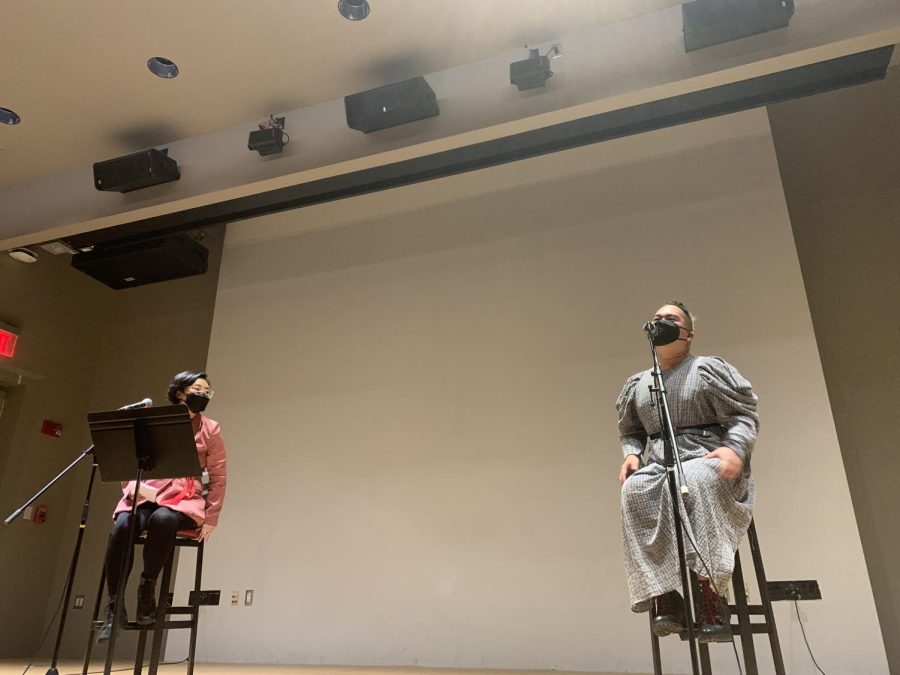Poet Paul Tran reads from original collection about identity, healing
May 11, 2022

Poet Paul Tran visited the College on May 3 to give a reading from their acclaimed debut book, a collection of poems titled All the Flowers Kneeling. Before Tran took the stage, four student poets — Izzy Levi ’23.5, Ethan Richmond ’24, Yeldana Talgatkyzy ’25, and Aliya Jade ’23.5 performed their original work.
“Paul has made something here that is sonically virtuosic, syntactically gorgeous, emotionally rigorous, and above all, deeply loving,” said Artist-in-Residence Franny Choi, who introduced Tran at the event and was the one who invited them to the College. She and Tran became friends during their time as classmates at Brown University, and, as she introduced Tran, she described herself as their “collaborator, slam coach, friend, and sister.”
Tran began with “Elegy with my Mother’s Lipstick,” a poem that placed them within the lineage of women that came before them and the sexual violence that they endured as a result of imperialism, particularly during the Indochina Wars. Tran was open about the trauma that they have faced, which they said deeply informs their poetry collection as they contend with reckoning, recovery, and survival.
They also commented on their journey as a poet and the lessons they had learned. “As a queer trans person of color, so much of our charge was to prove that we were good poets,” Tran said. “I wanted to show that poets of color, poets from the margins — don’t have to prove our mastery. We are masters of language, and we are even more than that — We are inventors.”
Tran achieves this goal in their work by evoking and subverting key figures in the Western canon such as Judith of “Judith beheading Holofernes,” the Greek mythical figure Icarus, and even the poetic form of the sonnet.
“I wanted to make that argument with the most hegemonic poetic form there is: the sonnet,” Tran said. Their version of the sonnet, a form they call the “hydra,” is composed of 13 lines instead of the traditional 14. The final line is made up of 13 words, each of which is the first word of each line in the next section. “In a sonnet, we’re always writing toward the end of the line — that’s where the rhyme happens, that’s where repeated words happen,” they explained. ”Poetry is an exercise of starting from some unknown future writing toward some known end.”
With the hydra, Tran wanted to introduce an alternate way of writing the sonnet. “As a survivor of sexual assult, I started from some known beginning, this extremity, this trauma that I had to overcome, towards this future I was working at, towards love, happiness, endurance, fulfillment,” they said. “Why can’t poetry reflect that?”
Rapturous applause followed their spoken poetry and many audience members formed a long line to buy their book following the event. “Hearing them speak and perform reignited my love for poetry and performance poetry, specifically,” Richmond said. “I had never seen that great of a performance of poetry in person.”








